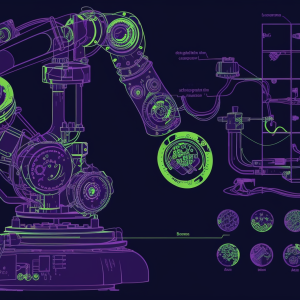Touted as the world’s most popular and versatile general programming language, C++ has won many developer hearts across the world. Designed as a way to deal with the shortcomings of C programming language, C++ has grown quickly to become the standard language for software infrastructure and resource-constrained applications, such as desktop applications, servers, apps and games.
This imperative and object-oriented language has become a popular language and is also considered by some as the ‘must-know’ language by developers everywhere. If you want to step up and enter the league of serious developers, then learning C++ is crucial.
So, if you want to advance your skills and learn C++ from scratch, then you’ve come to the right place. Our beginner’s course is the perfect place for you to get started and here’s why. The course has been designed step by step from the ground up to help you start at the basic level of C++. We assume you have no knowledge of C++ and you will learn everything from scratch. From the important basic concepts to more advanced ones, we’ve covered it all.
Learn the latest version of C++ in a simple and easy manner with our systematic tutorial. The course has been designed with experts from the industry to help learners break down the complicated C++ language so that they can grasp this amazing language. From variables and arrays to more complex vectors and templates, this course will make you fluent in this C++ programming language.
The best part is that the course does not simply rely on the theory aspects to help you learn, but comes packed with numerous relevant and real-world examples. And, at the end of each module you will face an entire challenge, that will help you solidify your learning and get hands-on with the actual language.
Let’s take a look at what you’ll learn in this course:
- Overview of C++, history and why you should use it
- How to set up the IDE and basic fundamentals such as variables, constants, conditionals, arrays, loops, structs, etc.
- Classes and Functions – including adding properties to classes, constructors and methods. It will also include pointers and class inheritance
- Function templates and class templates
- Vectors, how to manipulate data inside of a vector, create vector functions and even search in a vector
- Exception Handling, different syntax of setting up exceptions, generic exceptions, nested or changed exceptions
Enroll now and we will C you inside!
–










There are no reviews yet.